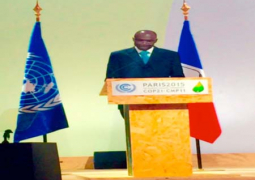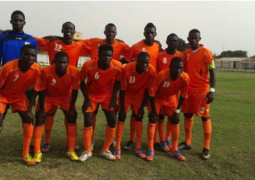The
Gambia National Commission for UNESCO, in collaboration with the Ministry of
Basic and Secondary Education, will on 19 September 2016 organize a launching
ceremony of the 2016 report in The Gambia at the regional Education Directorate
1 in Kanifing.
The
event will be held to share the report findings with policymakers,
stakeholders, teachers, and students, as well as to increase public awareness
of education’s central role in achieving the sustainable development goals.
According to the design of the programmes, a
panel of experts will discuss the main conclusions and recommendations of the
GEM Report 2016 and strategise to align the national education policy with SDG4
and its related targets.
In-depth discussion between the panelists and
with the audience will further make it possible to highlight the opportunities
and challenges posed by the new agenda for education.
It
would be recalled that since 2002, UNESCO has published an evidence-based
annual report to monitor progress towards the Education Millennium Development
Goals.
Starting
in 2016, a newly mandated series of reports entitled the ‘Global Education’
within the new framework of the 2030 sustainable Development Agenda.
The
first report in the new series, the 2016 GEM Report, focuses on the theme of
Education for people and planet; creating sustainable futures for all. It also
discusses education in the SDGs and beyond.
The
concept note the 2016 report establishes a monitoring framework and discusses
key financing challenges.
The report assesses post-2015 development in
governance, financing and intersect oral integration that have implications for
research and policy in education.
The
theme for the 2016 report is not only focused on the complex interrelationship
between education and key development sectors but also determines which
education strategies, policies and programmes are most effectively linked to
the economic, social, environmental and political priorities of the new
sustainable development agenda.
This
concept note for the 2016 report is organised in four sections, namely new
concepts and changing emphasis in the post-2015 era, monitoring the post-2015
education goal and other targets, financing issues and challenges, and theme of
education, sustainability and the post-2015 development agenda.
“The
2016 report comprehensively examines the links between education and
sustainable development by presenting literature-driven theoretical arguments,
building on existing evidence from research, and analyzing filed-based interventions,”
the UNESCO concept note stated.




